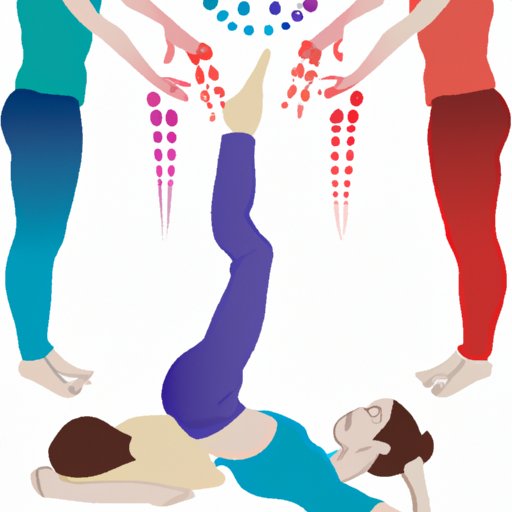
Introduction
Osteopathic manipulative medicine (OMM) is a hands-on approach to healthcare that involves using manual techniques to diagnose and treat a wide range of conditions. While OMM is most commonly associated with musculoskeletal issues, it can address problems throughout the body, including the cardiovascular, respiratory, and digestive systems. It is important for individuals who have encountered OMM to understand its principles and potential benefits.
In this article, we will provide a beginner’s guide to OMM. We will discuss its history, basic techniques, benefits, and how it can complement traditional medical care. We will also explore the science behind OMM and what to expect during your first appointment.
The Healing Power of Touch: A Beginner’s Guide to Osteopathic Manipulative Medicine
The history of OMM can be traced back to the late 1800s, when Andrew Taylor Still, a physician from Missouri, developed the principles of osteopathic medicine. Dr. Still believed that the body was capable of healing itself and that the role of the physician was to facilitate that healing process. He developed a hands-on approach to healthcare that focused on the musculoskeletal system and emphasized the importance of the body’s structural alignment in promoting healing.
Today, osteopathic physicians receive rigorous training in both traditional medical care and OMM. They are licensed to practice medicine in all 50 states and are considered primary care physicians. OMM is used to diagnose and treat a wide range of conditions, including headaches, back pain, digestive problems, and respiratory issues.
Basic techniques used in OMM include manipulation, massage, and stretching. These techniques are used to restore balance to the musculoskeletal and nervous systems, as well as improve blood flow and lymphatic drainage. OMM can also help alleviate pain, reduce inflammation, and improve range of motion.
The benefits of OMM are numerous. In addition to addressing specific conditions, it can also improve flexibility and mobility. Many patients who receive OMM report feeling more energized and less stressed. OMM can also improve lung function and promote better circulation, which can help boost the immune system.
Breaking Down Osteopathic Manipulative Medicine: How It Can Complement Traditional Medical Care
OMM can be used alongside traditional medical care to provide holistic treatment for a wide range of conditions. Because OMM is a non-invasive, hands-on approach to healthcare, it can be used in conjunction with medications, physical therapy, and other treatments.
Specific conditions where OMM is commonly used as a complementary treatment include asthma, fibromyalgia, and menstrual cramps. In some cases, OMM can even help reduce the need for medications or surgery.
One of the advantages of combining OMM with other treatments is that it can help improve outcomes. For example, using OMM in conjunction with physical therapy can help speed up the recovery process by improving range of motion and reducing pain.
Unlocking the Body’s Potential with Osteopathic Manipulative Medicine
OMM can be particularly effective in improving flexibility and mobility. By restoring balance to the musculoskeletal and nervous systems, OMM can help patients move more freely and with less pain. It can also help improve posture and promote better alignment.
In addition to addressing musculoskeletal issues, OMM can also alleviate pain throughout the body. This includes headaches, menstrual cramps, and digestive pain. OMM can also help improve circulation, which can help boost the immune system and promote healing.
The Science of Osteopathic Manipulative Medicine: Exploring the Evidence Behind A Hands-On Approach to Healing
The scientific research that supports OMM is extensive. Studies have shown that OMM can help reduce pain, improve lung function, and improve range of motion. It can also help reduce inflammation in the body, which can be beneficial for patients with conditions like asthma and arthritis.
While the exact mechanisms behind OMM are not yet fully understood, research suggests that it works by influencing the nervous system and promoting healing throughout the body. By restoring balance to the musculoskeletal system, OMM can improve overall health and wellness.
What to Expect at Your First Osteopathic Manipulative Medicine Appointment
If you are considering OMM, your first appointment will typically involve a consultation and assessment. Your osteopathic physician will take a detailed medical history and perform a physical exam to identify areas of pain or dysfunction. They will then develop a treatment plan tailored to your specific needs.
The treatment itself will typically involve manual techniques like manipulation, massage, and stretching. Your osteopathic physician may also provide guidance on lifestyle factors like diet, exercise, and stress management to help support your overall health and wellness.
Conclusion
Osteopathic manipulative medicine is a hands-on approach to healthcare that can provide numerous benefits for patients dealing with a wide range of conditions. By incorporating OMM into traditional medical care, patients can experience holistic treatment that promotes healing and improves overall health and wellness. Seeking out more information about OMM or scheduling an appointment with a trained osteopathic physician can be the first step towards optimal health and wellness.




